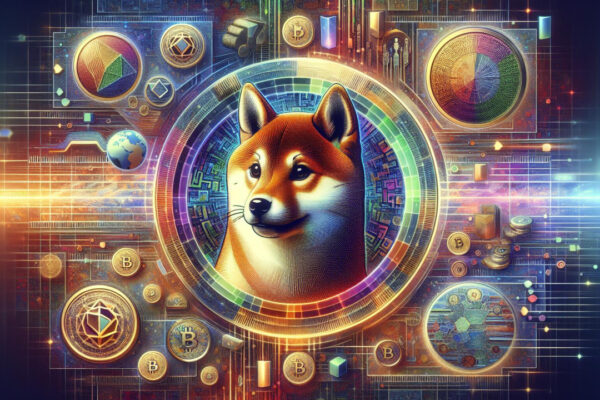The gaming industry experienced rapid change in 2023, driven by technological advances and regulatory adjustments. Online gaming continues to grow, especially in the application of virtual reality and blockchain technology. Future industry trends will focus on enhancing user experience and strengthening compliance.
Study on the Current Situation and Development Trends of the Gaming Industry in 2023


With the continuous development of the global economy and the increasing advancement of technology, the gaming industry, as an industry with special economic attributes, is presenting a complex and diverse development situation.In 2023, the gaming industry is facing unprecedented opportunities and challenges driven by multiple factors such as regulations and policies, market demand, and technological innovations. The purpose of this paper is to provide an in-depth analysis of the current situation of the gaming industry in 2023, as well as to explore its future development trends, providing reference and insights for industry practitioners and academic researchers. Against the backdrop of globalization and digitization, we will focus on the performance of the gaming market in different regions, the impact of technological innovations on the industry, and changes in consumer behavior, in an effort to comprehensively and objectively present the current situation and future direction of the gaming industry.
Analysis of the Overall Status of the Gaming Industry in 2023
The gaming industry faces multiple challenges and opportunities in 2023. With the further improvement of regulations, compliant gaming companies around the world are gradually resuming operations, and markets affected by the epidemic are beginning to show signs of recovery. According to the latest data, theOnline Gamingtogether withsportsbookThe field has seen a significant increase in user engagement, coupled with the use of new technologies, such as blockchain and virtual reality, which have greatly improved the user experience. For example, the popularization of smart contracts has enabledtransparencyrespond in singingsafetyhas been enhanced. At the same time, the standardization of gaming advertisements has also become a focus of attention for the industry, and changes in government regulatory policies will directly affect the direction of the market.
In terms of market competition, the trend of consolidation in the gaming industry is becoming more pronounced. Many companies are enhancing their market share through mergers and acquisitions and partnerships to create a more diversified product line. Data shows that the global gaming market size is expected to reach by 2025 to reach$800 billion., which further drives competition among the players. The following table demonstrates the growth expectations of each of the major markets in the gaming industry:
| market (also in abstract) | Projected growth rate (%) | Market size, 2025 (USD Billion) |
|---|---|---|
| North America | 15 | 4000 |
| European | 8 | 3000 |
| Asia-Pacific | 20 | 1500 |
By investing in digital transformation and adopting innovative technologies, gaming companies are not only able to optimize their business processes, but also effectively meet the needs of their users for a personalized experience. This transformation has not only excelled in opening up new markets, but has also supported the rapid growth of emerging models such as social betting. Although the overall environment faces many uncertainties, however, companies in the industry are striving to enhance their market competitiveness through innovation and strategic partnerships to meet the challenges ahead.
The impact and application of emerging technologies in the gaming industry
In recent years, the rapid development of emerging technologies has had a profound impact on the gaming industry. First of all.blockchain technologyThe introduction of this has enhanced the transparency and security of betting transactions and boosted users' trust in online betting platforms. Secondly.artificial intelligence (AI)(AI) in data analytics and user experience optimization, enabling gaming companies to more accurately predict user behavior and make personalized recommendations. In addition.virtual reality(VR) andaugmented reality(The integration of (AR) technology provides players with an immersive gaming experience, further attracting the participation of the younger generation of players. The integration of these technologies has not only driven innovation in gaming products, but also enhanced the overall service level of the industry.
In addition to technological applications, the gaming industry is very interested inmobile device (smartphone, tablet, etc)The reliance on it has also increased significantly. With the popularization of smartphones, more and more users tend to bet through mobile applications. Against this background, major gaming platforms have increased the optimization of their mobile interfaces to improve the smoothness of operation and user-friendliness of their applications. According to statistics, theMobile Gaming Market is expected to grow at a rate of 30% by 2023, which speaks volumes about the importance of mobile technology to the gaming industry. Meanwhile.Social media platformsThe rise has also provided gaming companies with new marketing channels that promote user interaction and loyalty.
| Type of technology | Application Areas | Key Benefits |
|---|---|---|
| blockchain | Secure transactions | High transparency and security |
| artificial intelligence (AI) | user experience | Personalized recommendations to improve user satisfaction |
| virtual reality | Game Experience | Immersive and interactive |
| mobile technology | Platform access | Convenience, play the game anytime, anywhere |
| social media | marketing channel | Enhance user interaction and brand loyalty |
Challenges and Opportunities in the Gaming Market due to Changes in Policies and Regulations
In recent years, the gaming market has been increasingly affected by policies and regulations, and governments in many countries have become increasingly strict in their approach to regulating the gaming industry. These changes have not only challenged the adaptability of traditional gaming companies in terms of operation and profit model, but also brought new opportunities for market participants. Specifically, in the face of stricter compliance requirements, gaming companies need to proactively adjust their internal management mechanisms and improve their compliance capabilities in order to effectively respond to the risks posed by the policies. In this process, the application of innovative technology has become an inevitable trend, for example:
- Smart Compliance System:Transactions can be monitored in real time and compliance with local laws and regulations can be ensured.
- Big Data Analytics:Help companies tap into user behavior and needs on a compliance basis.
- Blockchain technology:Ensure transparency and user trust in the betting process.
Apart from the challenges posed by policy changes, enterprises may also take the opportunity to seek business transformation and diversification. For example, the legalization of online gambling has injected new vitality into the industry and attracted a large number of young users. In the face of such a market environment, enterprises also need to pay attention to policy trends in the international market in order to formulate appropriate strategies in a timely manner. Meanwhile, the following aspects may become the key to future development:
- Diversity of game content:Enhance the user experience to meet the needs of different user groups.
- Cross-border cooperation:Collaboration with other entertainment industries to explore broader business models.
- Social responsibility:Enhance measures to protect players and improve corporate image.
Analysis of future development trends and strategic recommendations
In the future development trend of the gaming industry, the continuous advancement of technology will be the core driving force for change in the industry. With the rise of emerging technologies such as blockchain technology, artificial intelligence and virtual reality, the security and immersion of the gaming experience will be greatly enhanced. Possible future trends include:
- Popularization of blockchain technology: Enhance transparency and trust and reduce the risk of fraud.
- Personalized Gaming Experience: Optimize user experience and improve customer stickiness through data analysis.
- Diversified forms of betting: Combine gaming, social media and entertainment content to appeal to a broader audience.
To adapt to these changes, the gaming industry should consider implementing a number of strategies. First, companies should invest more in technology, especially in data security and customer privacy, to cope with increasing regulatory requirements. Second, strengthen brand-customer interactions by establishing loyalty programs and marketing campaigns through social platforms. In addition, the diversity of the global marketplace requires companies to have a flexible marketing strategy to adapt to regulations and cultural preferences in different regions. Below are some possible strategic recommendations:
| Strategic recommendations | Effectiveness of implementation |
|---|---|
| Increased investment in technology research and development | Enhanced security and user experience |
| Developing cross-platform collaboration | Expanding customer base and market share |
| Optimizing the compliance system | Addressing regulatory risk in each country |
In Conclusion
To summarize, the gaming industry in 2023 is experiencing significant changes and developments globally. Our analysis shows that technological innovation, adjustments in policies and regulations, and changes in consumer behavior are driving the transformation and upgrading of the industry. Despite the challenges from various aspects such as regulation and market competition, the future growth potential of the gaming industry remains promising in combination with the application of emerging technologies such as big data analytics, artificial intelligence technology and blockchain. Future research should focus on how to utilize technology to enhance user experience and market transparency under the premise of compliance, in order to promote the sustainable development of the gaming industry. It is hoped that the analysis in this paper will provide useful insights and references for relevant practitioners and researchers.









